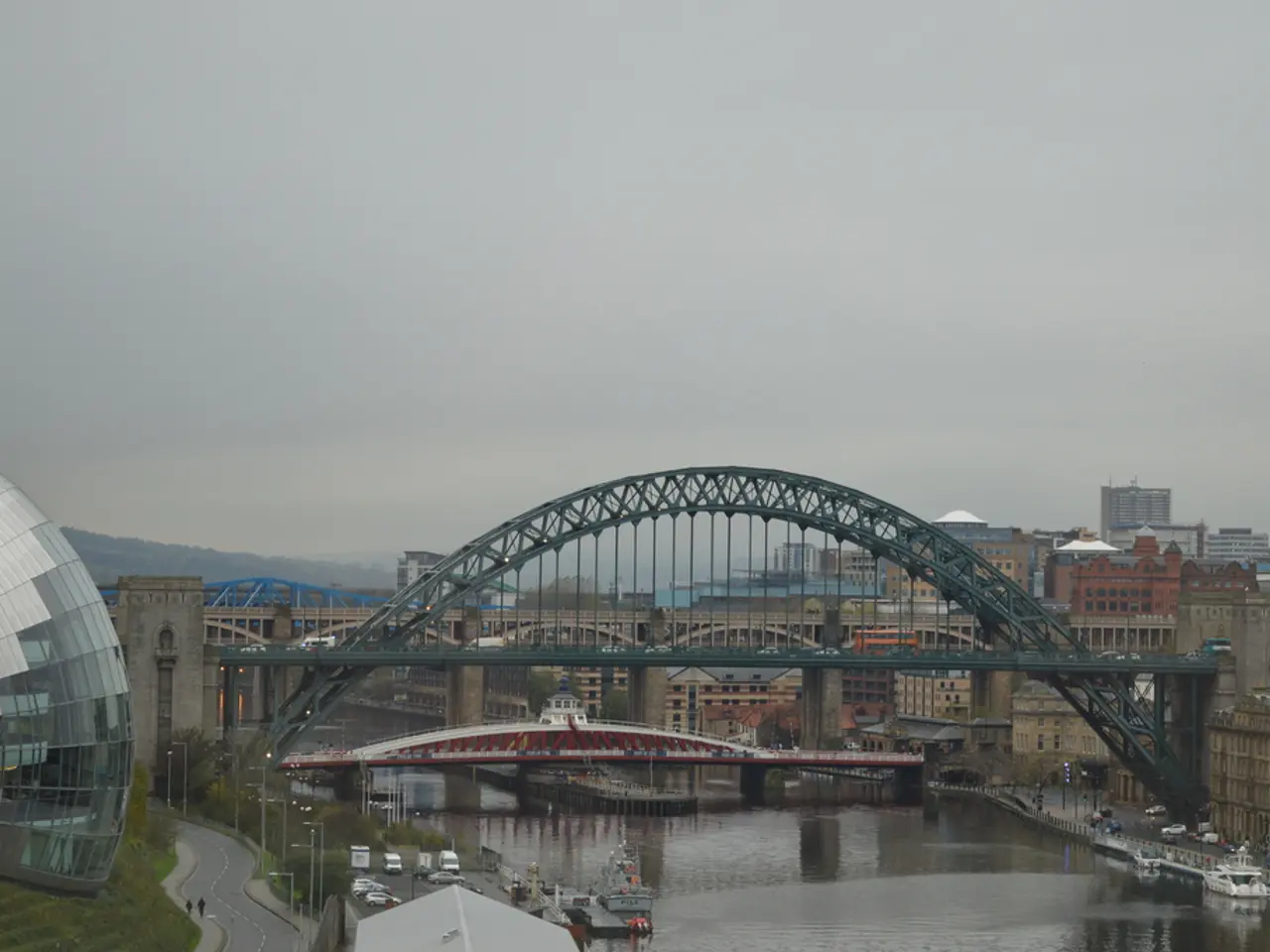City in Arizona thwarts colossal data center plan due to water and energy apprehensions
In a recent turn of events, the Tucson City Council has unanimously voted to reject the proposed data center project, known as Project Blue, within the city limits, effectively halting its development as of early August 2025[1][2][5]. The decision comes amidst concerns over water consumption, energy use, and broader issues of distrust in government, corporations, technology, and privacy[2][4][5].
Initially proposed by Beale Infrastructure, Project Blue was intended to be a data center built on 290 acres in Pima County, Arizona[1]. The project, if approved, would have demanded more water than four golf courses and a tremendous amount of power[2]. The finished center would have generated $250 million in tax revenue and provided 3,000 temporary construction jobs and 180 permanent positions with an average salary of $64,000 per year[2].
However, the opposition from residents and the city council was significant. The primary concerns revolved around the potential environmental impact due to the large water and energy use required by the data center, which raised sustainability concerns in the desert region[4][5]. Leaders also noted that the project did not align with Tucson’s climate priorities or long-term economic vision[2].
The project was also met with public distrust of corporate motives, data privacy, government transparency, and rapid advances in AI, amplifying resistance[2][4]. The lack of transparency and community engagement in the project's negotiation process further fuelled opposition[5].
While the city has blocked the annexation and development agreement, the fate of Project Blue may not be entirely sealed. Amazon and its developers may seek alternative nearby sites not under city control, pending state or federal regulatory approval[3]. However, local community groups vow to continue opposing any such developments[3].
In summary, Project Blue was stopped by Tucson’s City Council due to environmental sustainability concerns, community distrust, and a pushback against rapid tech-driven development perceived as lacking local benefits and transparency[1][2][3][4][5].
[1] Tucson Sentinel. (2025). Tucson City Council rejects Amazon data center project. [online] Available at: https://tucsonsentinel.com/news/local/tucson-city-council-rejects-amazon-data-center-project/
[2] Arizona Daily Star. (2025). Tucson City Council rejects Amazon data center. [online] Available at: https://tucson.com/news/local/tucson-city-council-rejects-amazon-data-center/article_d79b66c2-d163-11ed-b978-68b788a9b103.html
[3] KGUN9. (2025). Tucson City Council rejects Amazon data center project. [online] Available at: https://www.kgun9.com/news/local-news/tucson-city-council-rejects-amazon-data-center-project/
[4] The Verge. (2025). Tucson votes down Amazon data center over concerns about water use and climate. [online] Available at: https://www.theverge.com/2025/8/1/23284890/tucson-votes-down-amazon-data-center-water-use-climate
[5] The Guardian. (2025). Tucson rejects Amazon data center over environmental concerns and distrust. [online] Available at: https://www.theguardian.com/technology/2025/aug/01/tucson-rejects-amazon-data-center-over-environmental-concerns-and-distrust
- The proposed data center project, Project Blue, was halted due to concerns about its environmental impact, specifically water and energy consumption, which raised sustainability concerns in the desert region.
- The data center, if approved, would have generated substantial revenue for the city, providing $250 million in tax income and creating 180 permanent positions.
- The rejection of Project Blue did not completely dismantle its possibilities, as Amazon and its developers may explore alternative sites not under Tucson's control.
- The decision to reject the project was also influenced by broader distrust in government, corporations, technology, and the rapid advancement of AI, among other factors.




